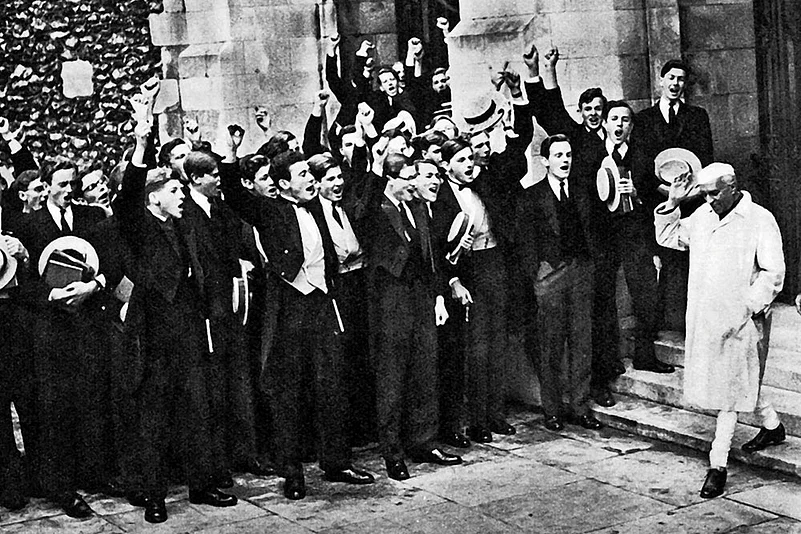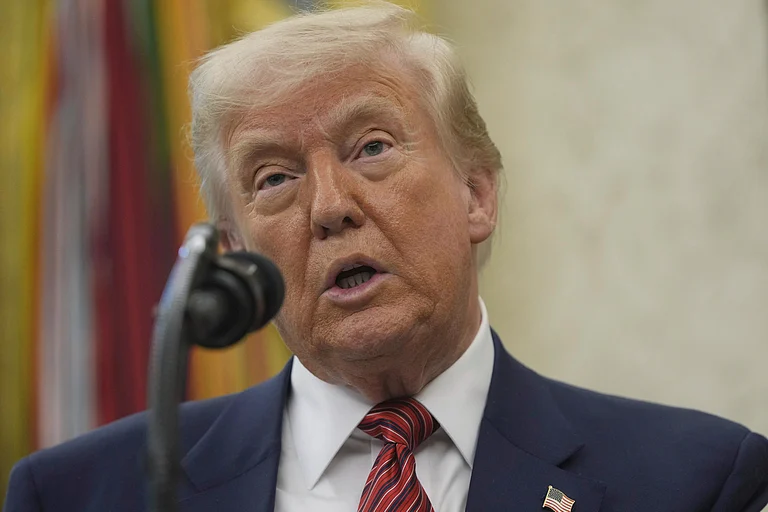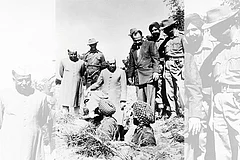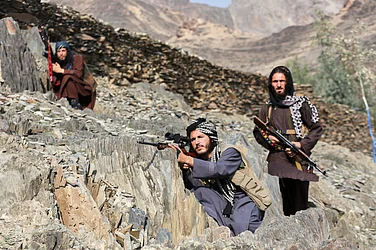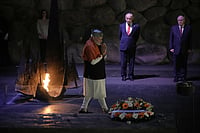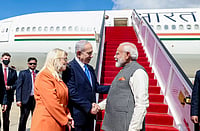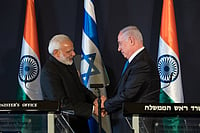In today’s polarised environment, Jawaharlal Nehru is often derided and blamed for much of the country’s ills. Nehru baiters have cropped up across the country. Social media posts filled with Nehru trolls taking many of his views out of context have proliferated in the last decade. Sadly, he has become a controversial figure, especially now with national elections round the corner, though he died about sixty years ago. This is because many of Nehru’s ideas have endured and still remain relevant.
Nehru was a product of his times and was influenced by the dominant liberal ideas sweeping the world at the turn of the century. He may have made some mistakes in judgement like every human being, but he was a visionary and a leader who placed India firmly on the world stage as a democratic, secular nation (though secular was added to the Constitution later).
Foreign policy was Nehru’s forte and right through his tenure he remained his own foreign minister. His education, intellectual appetite, erudition and eloquence made him at home on the world stage. He firmly believed that India, with its ancient civilisation, had a role to play in international politics. He worked towards that despite the many problems a newly independent nation was facing. Nehru was the architect of India’s foreign policy and much of New Delhi’s present stand on international affairs reflects his ideas.
Nehru, like many other leaders fighting for independence from European powers, was passionate about his anti-imperialism stand. The leadership of these countries worked loosely together to chart the course of the newly liberated nations or soon-to-be-independent ones. The Asian Relations Conference was held in New Delhi in 1947, and the Bandung Conference of 1955 as well as the Non-Aligned Movement of the 1970s took place against the background of the Cold War when the US and the former Soviet Union fought their ideological battle over capitalism and communism. As is well known, Nehru is one of the architects of the non-aligned movement, together with Egypt’s Gamal Abdel Nasser, Indonesia’s Sukarno and Yugoslavia’s Josip Broz Tito. The effort was on how to navigate the Cold War and not get involved in big power rivalry. Rather, the focus was on independent struggles, development and building of the new nations. Cooperation between countries in Asia and Africa was the way forward.
Most people believe that non-alignment meant keeping an equidistance from the power blocs of the Cold War. But Nehru saw it differently. “The essence of non-alignment is to preserve our freedom of action, to have multiple choices and to do what is in the best interests of the country. It certainly did not mean keeping an equidistance from both blocs,’’ explains historian Madhavan Palat, a Nehru scholar, who has edited and compiled 42 of the 100 volumes of Nehru’s selected works. There was room to collaborate with both the US and the Soviet Union, which India did and still continues to do as the Ukraine war has shown.
NAM was discredited and mocked from the start by the US and its camp followers as well as the Soviet leadership. Many in India felt that the country would have gained more by aligning with the US. This included Girija Shankar Bajpai, a former ICS officer who was Nehru’s principal foreign affairs adviser and was appointed after independence as the first secretary general (today’s equivalent of the foreign secretary) in the Ministry of External Affairs (MEA). Bajpai, who was from a leading family of Allahabad and an Anglophile, believed that India would be better served if it allied with the US. He was afraid that India was not in a position to fight communism. Though Nehru disagreed with Bajpai’s line, it did not stop him from appointing Bajpai as his principal adviser. The PM believed there was a price to pay to get into the US camp. Pakistan opted for the US by joining the Southeast Asia Treaty Organisation (SEATO) in 1954. Earlier the same year, it had signed the Mutual Defense Assistance Agreement with the US. India was keen to stay out of such defence agreements.
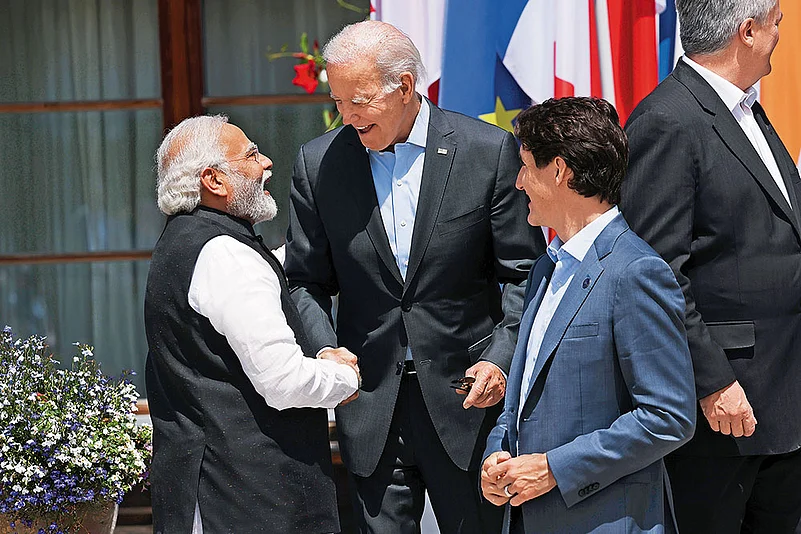
“It has been propagated that Nehru rejected offers of a permanent Security Council seat twice. The first offer was by the US in 1950 after the Korean War broke out in June that year. Ambassador Vijaya Lakshmi Pandit rejected it without bothering to consult the MEA. Nehru endorsed her. The offer was not credible,” says former ambassador K P Fabian. The Charter needed amendment and the USSR would have vetoed it as John Foster Dulles wanted India to take China’s place, then occupied by Taiwan. The second “offer” was in 1955 from the Russians. Bulganin, the then Premier of the Soviet Union, asked Nehru whether it was a good idea to put across the idea of India getting a permanent seat. Nehru thanked Bulganin but suggested that it was best to wait for China’s admittance to the UN. “Again, the offer was not credible. If Moscow took the initiative, Washington would veto any resolution to amend the Charter. In short, Nehru showed realism,’’ Fabian says.
Nehru contributed much more to India’s external relations than just non-alignment. As historian Manu Bhagavan says, “Jawaharlal Nehru was undoubtedly highly respected in his day…Non-alignment was but a feature of his larger foreign policy goal: One World, which envisioned a united planet of federated, autonomous states. He was consistent about this position, articulating it first in the 1942 Quit India declaration, more clearly in 1946, and then operationalising it thereafter.’’ Bhagavan explains that the progressive internationalist ideas on which One World were based “were shared and shaped by many, including Sarojini Naidu, Rabindranath Tagore and B R Ambedkar, as well as people like Albert Einstein and Wendell Willkie.”
As a leading light of the Non-Aligned Movement and the anti-imperialist struggle of Asian and African countries, Nehru placed India in the role of championing the cause of the developing world, especially nations in the African continent.
During the 2015 India-Africa summit held in New Delhi, where the government largely ignored the Congress leader’s role, the leaders from the continent refused to forget. African leaders heaped praise on Nehru. “We would like to recall the historical ties that bind us over the last century, emphasising particularly the role of two of your visionary prime ministers, Jawaharlal Nehru and his daughter, Indira Gandhi,” said South African President Jacob Zuma. “Indira Gandhi, in her first 11 years in office from 1966 to 1977, changed India’s Africa policy through the introduction of the Africa-India Development Cooperation and India’s support for liberation struggles in Africa, including South Africa.”
Zuma added that the actions of these two Indian visionaries have created the base of strong solidarity between African member states and India. Moroccan King Mohamed VI noted that his grandfather and the “great” Nehru had worked together in the anti-colonial struggle in Africa. Egypt’s President Abdel Fattah al-Sisi, as well as Ghana President John Dramani Mahama, Mauritius Prime Minister Anerood Jugnauth, and leaders from Mali, Sao Tome and Principe also spoke of Nehru. Zimbabwean President Robert Mugabe showered praises on him.
MORE FROM THIS ISSUE
“Nehru’s India was consistent in its support of cross-continental African needs,” says Bhagavan. It offered early and steadfast support against South African apartheid, friendships with Gamal Abdel Nasser and Kwame Nkrumah, Congolese peacekeeping (via the UN), the opening up of educational opportunities, and relentless championing of decolonisation. “Because all this took place as many African nations were just emerging from colonial control, Nehru was a name closely associated with the cause of freedom,” points out Bhagavan. “So it seems only natural for contemporary African remembrance to be laced with a genuine fondness for Nehru.’’
(This appeared in the print as 'Anchored In Cosmopolitanism')







